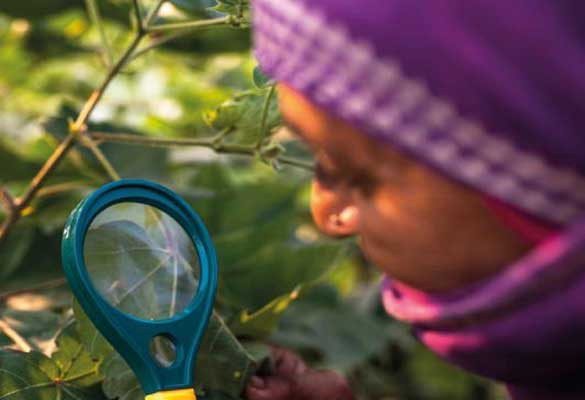The Better Cotton Initiative (BCI), a non-profit organization (NGO), focused on cotton-growing areas with a history of documented human rights abuses when it first debuted in 2005 with the goal of promoting the use of traceable, sustainable cotton in global supply chains.
The NGO started operating in China’s Xinjiang, the home of the Uighur ethnic minority, as part of BCI’s goal in 2013.
BCI partnered with state-owned Xinjiang Production and Construction Corps (XPCC), a company that human rights organizations and Western governments have accused of being responsible for the arbitrary detention and forced labor of Uyghurs and other Muslim ethnic minorities, to support its work on the ground in one of the world’s largest cotton-producing regions.
BCI continues to conduct business in Xinjiang until October 2020 despite rising evidence of abuses that were documented in NGO reports and media investigations in 2018 and 2019.
After the US Office of Foreign Assets prohibited transactions with the XPCC due to its role in “severe rights abuses against ethnic minorities,” the non-profit left a few months later.
BCI, which has offices in London and Geneva, said that the “continuous claims of forced labor and other human rights abuses” were a contributing reason in its decision to leave in a statement that has since been taken down from its website. Since that time, BCI has refrained from discussing why it took so long to take action or why it chose to depart Xinjiang.
Beijing has refuted claims of human rights violations and genocide in Xinjiang and given credit for lowering violent extremism and poverty to its “vocational education and training centers.”
The case of BCI is among the most notable instances of the difficult decisions and sacrifices labor and human rights watchdogs must make when working in China under President Xi Jinping’s increasingly authoritarian administration, according to detractors.
The Better Cotton Initiative (BCI), a non-profit organization (NGO), focused on cotton-growing areas with a history of documented human rights abuses when it first debuted in 2005 with the goal of promoting the use of traceable, sustainable cotton in global supply chains.
The NGO started operating in China’s Xinjiang, the home of the Uighur ethnic minority, as part of BCI’s goal in 2013.
BCI partnered with state-owned Xinjiang Production and Construction Corps (XPCC), a company that human rights organizations and Western governments have accused of being responsible for the arbitrary detention and forced labor of Uyghurs and other Muslim ethnic minorities, to support its work on the ground in one of the world’s largest cotton-producing regions.
BCI continues to conduct business in Xinjiang until October 2020 despite rising evidence of abuses that were documented in NGO reports and media investigations in 2018 and 2019.
After the US Office of Foreign Assets prohibited transactions with the XPCC due to its role in “severe rights abuses against ethnic minorities,” the non-profit left a few months later.
BCI, which has offices in London and Geneva, said that the “continuous claims of forced labor and other human rights abuses” were a contributing reason in its decision to leave in a statement that has since been taken down from its website. Since that time, BCI has refrained from discussing why it took so long to take action or why it chose to depart Xinjiang.
Beijing has refuted claims of human rights violations and genocide in Xinjiang and given credit for lowering violent extremism and poverty to its “vocational education and training centers.”
The case of BCI is among the most notable instances of the difficult decisions and sacrifices labor and human rights watchdogs must make when working in China under President Xi Jinping’s increasingly authoritarian administration, according to detractors.
Image Credits: Better cotton.org



